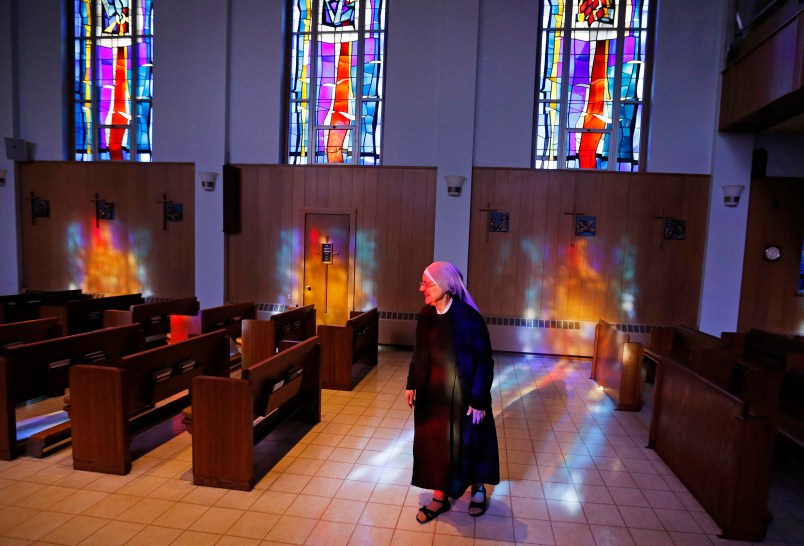DENVER (AP) — The federal health care law doesn’t infringe on the religious freedom of faith-based nonprofit organizations that object to covering birth control in employee health plans, a federal appeals court in Denver ruled Tuesday.
The case involves a group of Colorado nuns and four Christian colleges in Oklahoma.
Religious groups are already exempt from covering contraceptives. But the plaintiffs argued that the exemption doesn’t go far enough because they must sign away the coverage to another party, making them feel complicit in providing the contraceptives.
The 10th Circuit Court of Appeals disagreed. The judges wrote that the law with the exemption does not burden the exercise of religion.
“Although we recognize and respect the sincerity of plaintiffs’ beliefs and arguments, we conclude the accommodation scheme … does not substantially burden their religious exercise,” the three-judge panel wrote.
The same court ruled last year that for-profit companies can join the exempted religious organizations and not provide the contraceptives. The U.S. Supreme Court later agreed with the 10th Circuit in the case brought by the Hobby Lobby arts-and-crafts chain.
The birth-control rule has been among the most divisive aspects of the health care overhaul. Some advocates for women praise the mandate, but some religious groups have decried it as an attack on religious freedom.
The Denver nuns, called the Little Sisters of the Poor, run more than two dozen nursing homes for impoverished seniors. Two years ago the U.S. Supreme Court offered the nuns a short-term reprieve on the exemption pending their appeal.
In addition to the Denver nuns, the law was challenged by Southern Nazarene University, Oklahoma Baptist University, Mid-America University and Oklahoma Wesleyan University. Also challenging the waiver process is a group called Reaching Souls International, an evangelist Oklahoma organization that does Christian mission work overseas.
The birth-control exemption was extended to other religious nonprofits while the case was being heard. Those included Wyoming Catholic College in Casper, Wyoming.
The three-judge panel included one judge who also ruled in the Hobby Lobby decision. The judges drew a distinction between the two cases, noting that the religious nonprofits have an exemption process that wasn’t available to Hobby Lobby.
While the Hobby Lobby faced the prospect of fines for not providing coverage, the judges noted, the nonprofits must only file for an exemption, making the burden less substantial.
The judges called the health law’s accommodation for religious objectors adequate.
“The accommodation relieves plaintiffs from complying with the mandate and guarantees they will not have to provide, pay for, or facilitate contraceptive coverage,” the judges wrote.
The group that brought the lawsuit on behalf of the nuns and religious schools, the Becket Fund for Religious Liberty, said in a statement that it would appeal the decision to the U.S. Supreme Court.
“There is no reason the government cannot run its programs without hijacking the Little Sisters and their healthplan,” Becket Fund lawyer Mark Rienzi said in a statement.
___
Kristen Wyatt can be reached at http://www.twitter.com/APkristenwyatt
Copyright 2015 The Associated Press. All rights reserved. This material may not be published, broadcast, rewritten or redistributed.



